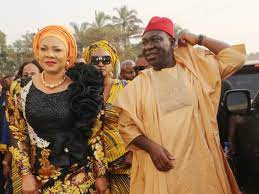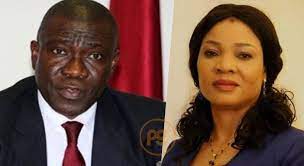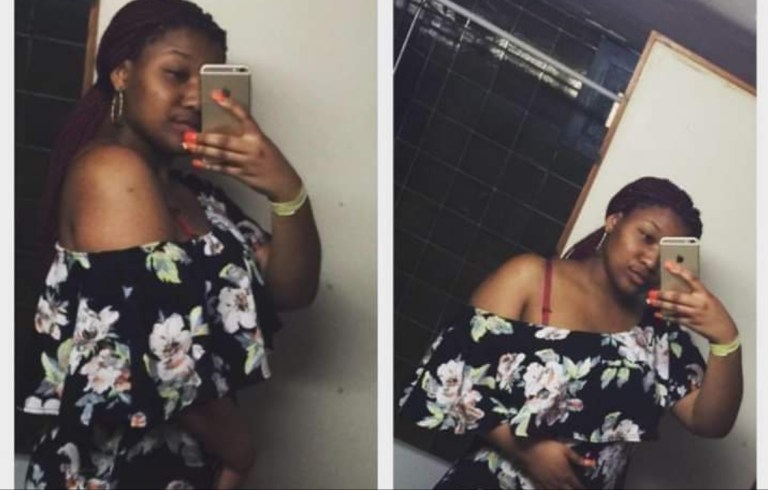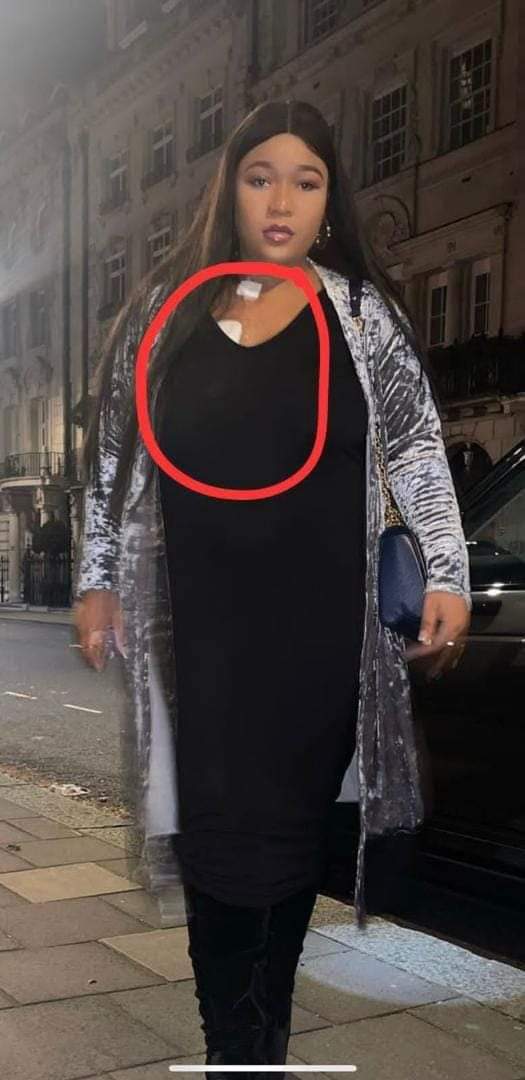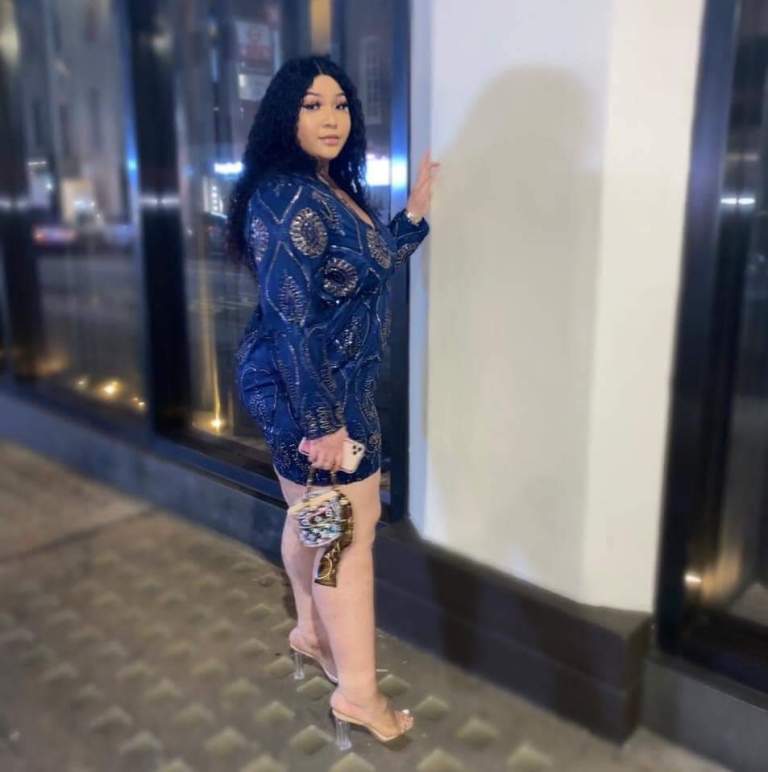The unproven charges relating to organ and human trafficking preferred against the immediate former Deputy-Senate President Ike Ekweremadu and his wife at the Uxbridge Magistrates’ Court, United Kingdom, in my view, provide a window of opportunity to examine the legal aspects of organ trafficking and organ harvesting in Nigeria. The National Organ and Transplant Act of 1984 defines human organ as the human kidney, liver, heart, lung, pancreas, bone marrow, cornea, eye, bone and skin or any subpart thereof and any other human organ or any subpart thereof, including that derived from a fetus. I participated in the Public Hearing on the National Health Bill 2012 (NHB 2012), which substantially was a replication of the controversial 2008 National Health Bill. As requested by the Senate Committee on Health at that time, I submitted a memorandum to the Committee on how Nigeria could tackle human and organ trafficking in Nigeria. I also presented a memorandum at the National Assembly during the Public Hearing on the Bill to establish the Nigerian assisted reproduction authority which, inter alia, was to regulate the practice of assisted reproductive techniques in Nigeria. I was also invited to participate in the Public Hearing on a Bill to enact a law to regulate organ harvest and transplantation in Lagos state last year. I also submitted a similar memorandum to the Lagos State House of Assembly on ways to curtail illegal organ harvesting in Lagos State.
Suffice it to say that in the course of researching and gathering information in order to prepare and present the aforesaid memoranda both at the National Assembly and the Lagos State House of Assembly respectively, I was able to gain some insights into the law on organ trafficking and the mode of operation of organ traffickers in Nigeria and in the world. The human trafficking statistics being reeled out days in Nigeria are simply mind-boggling. Every day uncountable number of human beings especially young girls and children are being trafficked to many unknown destinations across the world where they are either used as sex slaves or subjected to all forms of inhuman degradation. As Prof. Phillip Njemanze rightly pointed out in his essay on organ trafficking, Nigeria is the hub of illegal organ harvesting and organ transplantation in the world. Many foreign organ traffickers lay siege to Nigeria in their bid to scout for cheap organs. So Nigeria is a cheap source of human organs for transplantation for the Western countries.
According to Prof Njemanze, “the gains of using ovarian eggs poached from Nigerian women to perfect the complicated tissue cloning procedure called somatic cell nuclear transfer (SCNT) promises economic revenue of thirty trillion USD, one-third of the World economy…” Women, for example, are being promised money and enticed to sell their eggs. For example, Sushma Pandey, a 15-year-old Mumbai girl sold her eggs for $450. She did it three times. But 18 months later she died despite the fact that the clinic which retrieved her eggs claims to be world leader and specialist in gay surrogacy. Some female undergraduates of a certain University in Lagos sell their ovaries for a partly sum of N120,000. Illegal kidney harvesting industry booms in Lagos. The illegally-harvested kidney sells between N170,000 to N1 million. Some human organs sell for only N250, 000. For example, a harvested heart sells for N250, 000. Powerful organ harvesting syndicates in Lagos lure their customers to India for organ harvesting. (Seehttps://tribuneonlineng.com/organ-harvesting-industry-booms-in-lagos-as-probe-deepens). Under the cover of being offered a lucrative job in Europe, thousands upon thousands of young Nigerians are trafficked to Europe every year only for them to discover later, of course to their great chagrin, that they were trafficked solely for the purpose of illegally harvesting their organs. The poor youngsters are deceived into believing that lucrative jobs await them in Europe and in the process their organs are harvested. Peeved by this, the House of Representatives, Abuja was invited in 2020 to probe an alleged human organ harvesting business in Nigeria and the movement of the harvested organs abroad. During the probe, some government officials, and I believe, the Comptroller General of Customs were quizzed. The Director-General of National Agency for the Prohibition of Trafficking in Persons (NAPTIP) Ms. Julie Okah-Donli regrets the increasing cases of organ harvesting under the guise of ritual killings in Nigeria.
But the real tragedy in all this which is the resume of this piece is that the extant law, Nigeria’s National Health Act 2014 (signed into by former President Goodluck Jonathan) which ought to regulate organ donation, prescribe the development and management of the country’s national health system as well as set standards for rendering health services in Nigeria, is fraught with egregious provisions endorsing illegal organ harvesting and organ poaching in Nigeria. Specifically, section 48(1) (b) of the National Health Act 2014 states that a person shall remove the tissue, blood or blood product from another living person without his informed consent “for medical investigations” and “treatment in emergency cases”. Strangely enough, Section 62, the interpretation section of the Act, did not provide the definition of the phrases “medical investigations” and “treatment in emergency cases”. The import of this omission is that anybody under the pretext of carrying out “medical investigations” or “treatment in emergency cases” could waylay any non-consenting living person and forcefully remove his or her tissue or blood or blood product. Section 48 (2)(a) of the Act states that “a person shall not remove “tissue” which is not replaceable by natural processes from a person younger than 18-years”. The implication of this is that a person can remove tissue replaceable by natural processes from persons who are 19 years and above. Section 49 is ambiguously couched and could be greatly abused. It states that a person shall use “tissue” removed or blood or a blood product withdrawn from a living person only for such medical or dental purposes as may be prescribed. Again the definitions of the word “tissue” and the phrase “medical or dental purposes” are not provided in the interpretation section of the Act.
Perhaps the most scandalous of the Act are sections 51, 52 and 53. Section 51 authorizes the removal of a tissue or an organ of a living person for transplantation in another living person without any consent clause. The only thing it says is that the removal should be carried out “at a hospital authorized for that purpose” or with “the written authority of a medical practitioner in charge of the clinical services….”. Section 52 authorizes a registered medical practitioner or dentist to carry out the heinous crime. Section 53 authorizes the sell or trade in human tissues like female eggs cells, sperms, cornea etc. provided that payment from the sell or trade is a “reasonable payments are made in an appropriate health establishment for procurement of , tissue, blood or blood products”.
I earlier said that I participated in the Public Hearing on the National Health Bill 2012. The Bill was sponsored by Senator Ifeanyi Okowa, and co-sponsored by Senators Chris Ngige, Bukola Saraki, Paulinus Igwe, Danladi Sankara, Christopher Omoworare, Gamawa Garba, Sahabi Ya’u and Sefiu Kaka. The Public Hearing took place at the Hearing Room of the Senate on 11th February 2013. The Public Hearing was organized by the Senate Health Committee. The Public Hearing Room of the Senate was packed full with many stakeholders which included the Health Reform Foundation of Nigeria; Medical and Health Workers Association of Nigeria; The Nigerian Medical Association (NMA); The Pharmaceutical Association of Nigeria; The Catholic Bishops Conference of Nigeria; Project for Human Development; Happy Home Foundation; Doctors Health Initiative; Nigerian Physiotherapy Association; Association of Medical Laboratory; Nigerian Radiographers Association; Catholic Medical Association of Nigeria; Catholic Women Organization (CWO); the trado-medical Association of Nigeria et cetera. Declaring the Public Hearing open, the then Deputy Senate President, Ike Ekweremadu, urged all the stakeholders present to employ their best initiatives in articulating a National Health Bill that would improve the country’s health system. On his part, the then Chairman, Senate Health Committee, Senator Ifeanyi Okowa, who also presided over Public Hearing, stated that the National Health Bill 2012 was an enabling Bill aimed at regulating, developing and managing the country’s national health system and to set standards for rendering health services in Nigeria. During the Public Hearing, the stakeholders argued that trafficking in human eggs, embryos and embryonic stem cell research had become a multibillion dollar business worldwide. Therefore, under the pretext of regulating organ trafficking or harvesting in Nigeria our government should not legalize the multi-billion illegal business otherwise it would be difficult to stamp out in the future owing to our ineffective policing system, poor judicial checks and regulatory policies. All the stakeholders also agreed that Nigeria needed a Health Act that aimed at overhauling the country’s health care system in order to improve the medical facilities in our hospitals; save billions of Naira squandered in medical treatment abroad every year; avoid untimely deaths resulting from diseases and prevent high infant mortality and maternal mortality rates. It was in this spirit that the vexatious section 51 (1) (a) (b) of the Bill was amended to read thus: “No person shall:- (a) manipulate any genetic material, including genetic material of human gametes, zygotes or embryos; or (b) engage in any activity, including nuclear transfer or embryo splitting, for the purpose of the reproductive cloning of a human being”. Section 51 (2) was also amended to read: “No person shall import or export human zygotes or embryos in Nigeria”. While section 51(3) remains thus: “ Any person who contravenes a provision of this section or who fails to comply therewith is guilty of an offence and is liable on conviction to imprisonment for a minimum of five years with no option of fine”
But shockingly, after the National Health Bill was signed into law by the then President Jonathan we discovered that the aforementioned vexatious sections 48(1)(b), 48(2), 51, 52 and 53 which the stakeholders complained about and resolved that they should be amended were still retained unamended in the Act. Section 51 authorizing the removal of a tissue or an organ of a living person for transplantation in another living person without any consent clause was retained in the Act. It is my humble view that sections 48(1) (b), 48(2), 49, 51, 52 and 53 of the National Health Act which permit, inter alia, the removal of the tissue, blood or blood product from another living person without his or her informed consent for “medical investigations” and “treatment in emergency cases” and the selling of and trading in human tissues and blood products are in violation of section 33 (right to life); section 34 (right to dignity of the human person); section 37 (right to privacy) and section 38 (right to freedom of thought, conscience and religion) of the 1999 Constitution as well as Articles 2, 4, 5, 6 and 8 of the African Charter on Human & Peoples Rights (Ratification Enforcement) Act, cap 10. Granted, rights in sections 37 and 38 of the 1999 Constitution are curtailed under section 45(1) of the same Constitution to the effect that nothing in sections 37 and 38 shall invalidate any law that is reasonably justifiable in a democratic society:
(a) in the interest of defence, public safety, public order, public morality or public health; or
(b) for the purpose of protecting the rights and freedom of other persons
But the removal of a tissue or an organ of a living person without his or her consent for transplantation in another living person cannot be a law that is reasonably justifiable in a democratic society as envisaged under section 45(1) of the 1999 Constitution. Therefore sections 48(1) (b), 48(2), 49, 51, 52 and 53 in the National Health Act are unconstitutional and therefore null and void. By empowering medical doctors to play God and decide when to remove organs from living persons without their consent, section 51 of the Act constitutes an infringement of the rights of citizens to life, dignity of their persons as well as the rights to privacy and freedom of thought, conscience and religion as guaranteed by Section 33, 34, 37 and 38 of the Constitution.
Relying on the case of Denloye v Medical & Dental Practitioners Disciplinary Tribunal the Nigerian Supreme Court held in the case of Medical and Dental Practitioners Disciplinary Tribunal v Dr. John Emewulu Nicholas Okonkwo (2002) AHRLR 159 that failure to extract a patient’s informed consent before administering a blood transfusion on him constituted an infraction of his fundamental human rights to privacy (section 37) and right to freedom of religion and conscience (section 38). The Supreme Court held that the patient’s constitutional right to object to medical treatment or, particularly, as in this case, to his tissue, blood or blood products or his organ being taken away from his body is founded on fundamental rights protected in the 1999 Constitution under the (i) right to privacy: section 37; (ii) right to freedom of thought, conscience and religion: section 38. The Court further held that the right to privacy “implies a right to protect one’s thought, conscience or religious belief and practice from coercive and unjustified intrusion; and, one’s body from unauthorized invasion. The right to freedom of thought, conscience or religion implies a right not to be prevented, without lawful justification, from choosing the course of one’s life, fashioned on what one believes in, and a right not to be coerced into acting contrary to religious belief. The limits of these freedoms, as in all cases, are where they impinge on the rights of others or where they put the welfare of society or public health in jeopardy. The sum total of the rights of privacy and of freedom of thought, conscience or religion which an individual has, put in a nutshell, is that an individual should be left alone to choose a course for his life, unless a clear and compelling overriding state interest justifies the contrary…”. In the leading judgment of the apex court Justice Emmanuel Ayoola held inter alia: “The patient’s constitutional right to object to medical treatment or, particularly, as in this case, to blood transfusion on religious grounds is founded on fundamental rights protected by the 1979 Constitution…The right to privacy implies a right to protect one’s thought, conscience or religious belief and practice from coercive and unjustified intrusion; and, one’s body from unauthorized invasion. The right to freedom of thought, conscience or religion implies a right not to be prevented, without lawful justification, from choosing the course of one’s life, fashioned on what one believes in, and a right not to be coerced into acting contrary to religious belief. The limits of these freedoms, as in all cases, are where they impinge on the rights of others or where they put the welfare of society or public health in jeopardy.”
Under the English Law, the consent of a living person to medical treatment or to the removal of any of his bodily parts is absolutely mandatory. In fact the person can maintain an action in tort or civil wrong for damages for trespass against his person against a medical practitioner or a hospital for removing his tissue, organ, blood or blood product or any of his bodily part without his consent. See Wells v Surrey A. H. A. E (1978). Even when consent has been obtained, it is duty of the medical practitioner, said Justice Bristow, in the case Chatterton v Gerson (1980), to explain to the person beforehand what he intends to do, and its medical implication, in the way careful and responsible doctor in similar circumstances would do. And if the medical doctor claims that he did it under a medical emergency, the onus of proving the need for an emergency is upon him, and this might be difficult to discharge.
The argument of the backers of sections 48(1) (b), 48(2), 49, 51, 52 and 53 of the National Health Act argue that since the selling of or trading in human parts has become a thriving business in Nigeria, it is preferably to regulate it rather than ban it to ensure that only authorised persons carry it out. This argument is fundamentally flawed. First: a society doesn’t regulate a crime simply the crime is rampantly committed in that society. For example, a society cannot regulate the heinous crime of armed robbery simply because it has become rampant. Second: considering our ineffective police system, judicial checks and regulatory policies, the efforts to regulate the selling of or trading in human parts in Nigeria are efforts in futility. Third: section 21 (a) of the 1999 Constitution enjoins the State to protect, preserve and promote Nigerian culture. Fourth and more importantly, the National Assembly, by virtue of section 4(2) of the 1999 Constitution, is enjoined to make laws for the peace and good government in Nigeria, in other words, laws that conform to the social and religious realities in the country.
Therefore to the extent to which the National Health Act is inconsistent with the 1999 Constitution, which is the supreme law of the land, it is null and void and unenforceable. In Military Governor of Ondo State & Others V Adewumi (1988) 3 NWLR 280 Justice Nnaemeka-Agu (of the blessed memory) held that the Constitution is the grundnorm, the fundamental law or the organic law of the land. All laws derive their validity from the Constitution. Any law that is inconsistent with the provisions of the Constitution shall be rendered void to the extent of the inconsistency. And the Nigerian courts have the power, in exercise of their judicial powers, to declare legislation of the National Assembly that contravenes the provisions of the 1999 Constitution invalid and unconstitutional whether the contravention is substantive or procedural or whether the contravention merely interferes with any of the constitutional fundamentals including the guaranteed rights, the principles of federalism or the constitutionally recognized concept of separation of powers. (See the pronouncements of Justices Fatayi-Williams, Bello, Idigbe, Obaseki, Eso, Nnamani and Uwais in Attorney-General of Bendel State V Attorney-General of the Federation and others).
Consequently, the country’s National Health Act is overdue for immediate amendment. As I earlier stated, the National Assembly is constitutionally empowered to enact good laws for the country; laws that conform to the philosophical realities of the Nigerian people not laws that threaten national security. To that effect, the offensive sections 48(1) (b), 48(2), 49, 51, 52 and 53 should be yanked off or amended in such a way that they do not give rise to any ambiguity or create loopholes for organ trafficking or illegal organ harvesting in Nigeria.
Sonnie Ekwowusi is the Chairman, human and Constitutional Rights Committee of the African Bar Association


